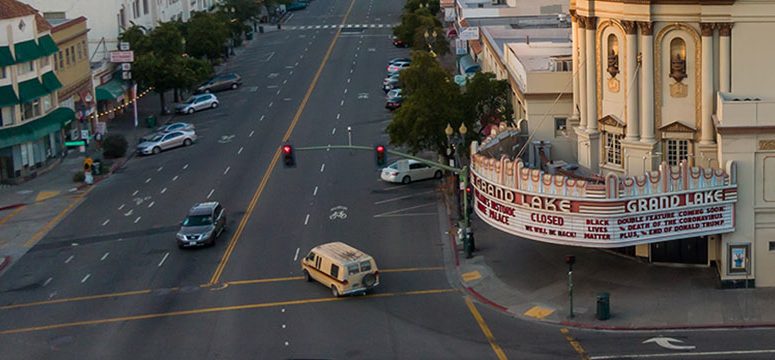
A Landmark Case for South Carolina Cyclists: South Carolina this week pursued felony charges against a driver who, through sheer carelessness, caused the death of a cyclist, marking a departure from the historical handling of such cases. One year ago while driving down a straight road in broad daylight, motorist Daniel Johnson hit four cyclists, including Dr. Matthew Burke, who died in February after 128 days in a coma.
Network blog Charleston Moves is reporting that Johnson pleaded guilty to felony manslaughter charges yesterday. The blog’s Tom Bradford celebrated the legal milestone for cyclists in his state: “When the person in control of a two-ton gasoline or diesel-powered vehicle isn’t paying enough attention … or doesn’t care enough to ‘give three feet’ clearance to a person on a bicycle, is it just an everyday ‘ooops, sorry!’ accident … or is it homicide?” he said. “Perhaps the tide is turning in South Carolina … toward justice.”
The Senselessness of City-Owned Parking Garages: A scandal has been brewing in the city of Baltimore, centering around the city’s 13 publicly controlled parking garages and 21 surface lots. The issue revolves around “allegations of a director who secretly owned shares in a private garage on the side and a contract manager who exerted influence on garage operators to hire a company owned by her then-boyfriend,” reports Matt Yglesias atThink Progress. All of which begs a larger question. “Bringing ethics to municipal government is frequently a challenge, but these scandals — and especially the business of an executive director who was also a garage owner — raise the question of why cities are in this business in the first place.”
Local Control of Speed Limits Sought in Washington State: Anyone who’s ever tried to lower the speed limit on a neighborhood street (me!) knows it can be a challenge. The state frequently requires a time consuming traffic study that is likely to focus on the interests of motorists (car capacity) over neighborhood residents (pedestrian safety). Recognizing these challenges, leaders in the state of Washington have put forward a bill that would allow neighborhoods to more easily lower the speed limit in their community. Erica C. Barnett at Network blog PubliCola reports: “The proposal wouldn’t, as some have implied, actually lower speed limits; instead, it would merely give cities the option of lowering limits on 30-mph streets to 20 mph.”
The legislation has faced some opposition by libertarians. But Barnett says this is a matter of life or death, ideological purity notwithstanding. “Hit a pedestrian or cyclist with your car at 20 mph, and they’re likely to survive. Hit someone at 30 mph, and they stand about a 55 percent chance of staying alive,” she said. “Hit them at 40 mph, and their survival odds shrink to 15 percent. Speed limits aren’t about making your life as a driver less fun; they’re about protecting you and the people — including, yes, vulnerable street users like cyclists, pedestrians, and people in wheelchairs — from death and injury.”





